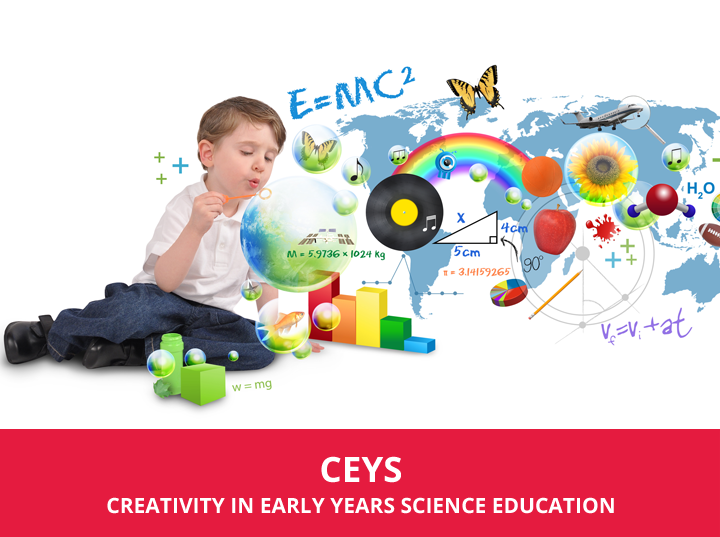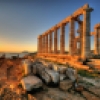.
CEYS

Details
The training course aims and objectives promote the overall objective:
- To foster creative approaches to science teaching and learning in preschool and the first years of primary school.
More specific aims and objectives of the training course for early years educators include:
- to use inquiry-based science education approaches in early years settings
- to experience how creativity is manifested in the science classroom
- to use creative approaches in teaching science
- to develop positive attitudes towards learning and teaching science and creativity
- to act as innovators, researchers and reflective practitioners
- to engage in communities and partnerships with other stakeholders (other teachers, parents, professional associations, experts, etc.)
- to develop understandings about the Nature of Science
- to recognise the potential in everyday materials and the importance of observing children’s use of resources to gain insights into their developing explorations and thinking
- to explore the ways in which tasks can be designed with appropriate resources to support collaboration and how they can help children to collaborate effectively, encouraging them to articulate their ideas and exchange and evaluate these
- to experience the different purposes of inquiry and the ways in which everyday learning activities can be opened up to allow greater opportunities for problem solving and creativity
- to be enabled to use different forms of questioning and reflect on their productivity in different contexts, as well as ways of encouraging children’s questions, particularly their scientific questions which have the potential to be generative and/or evaluative and thus support their creativity
- to reflect on the purposes of recording, selecting approaches appropriate for purpose and different ways of representing and expressing ideas, as well as recording as a process, to support thinking, reflection and dialogue.
Finally, the course will strengthen its European dimension by inviting participants to form a community of practice with fellow teachers across Europe. To achieve this, the course will serve as an introduction to a bottom-up community building model to professional development which will provide the necessary space for them to exchange and share ideas, experiences, concerns and educational resources with other practitioners from diverse backgrounds.
Attica, Greece
.
.
About
The European Science Education Academy (ESEA) is a common effort of the European Physical Society, Ellinogermaniki Agogi, NUCLIO, and the Cardiff University to support the modernization and continuous development of STEM (Science, Technology, Engineering and Math) education and training. ESEA provides numerous training activities, tools and resources that will enable teachers in STEM to maximize their efforts in the design of inquiry based learning activities as well as to create motivating and engaging lessons that inspire young pupils and students to take up a career in STEM.
Read more
LATEST NEWS
-
11 Dec 2017
-
26 Oct 2017


